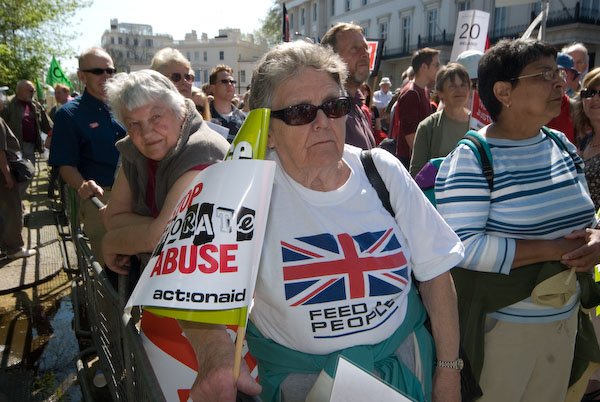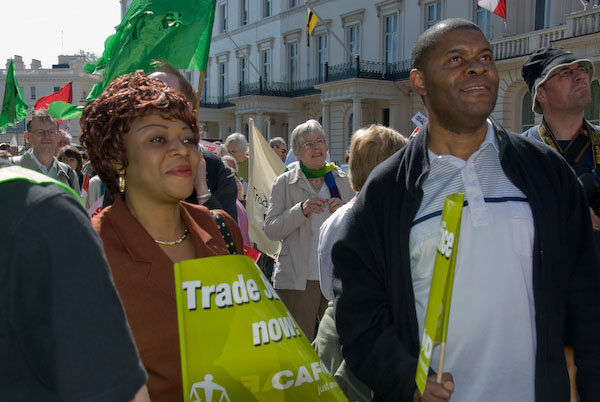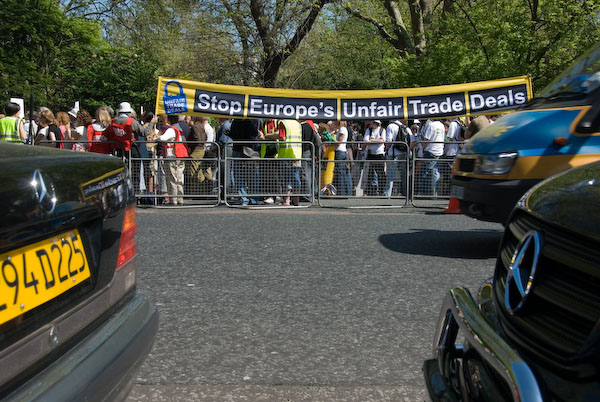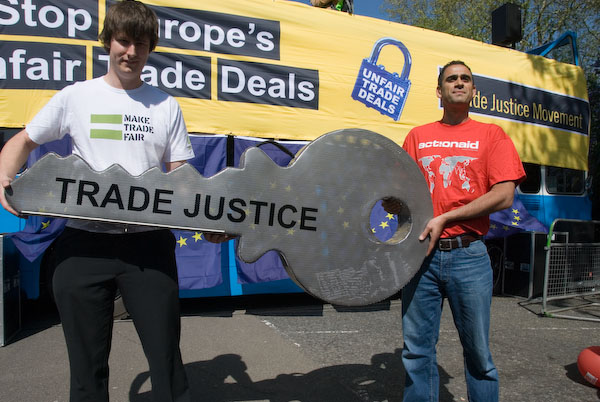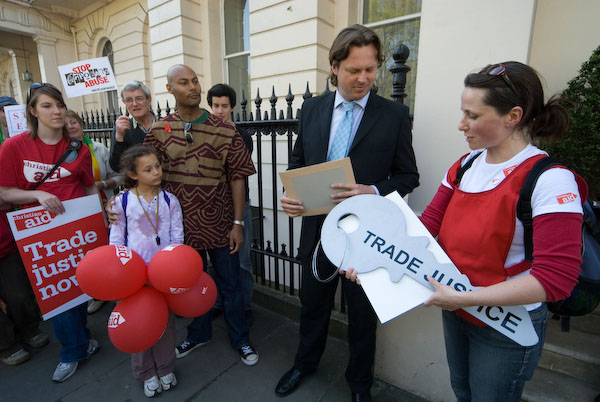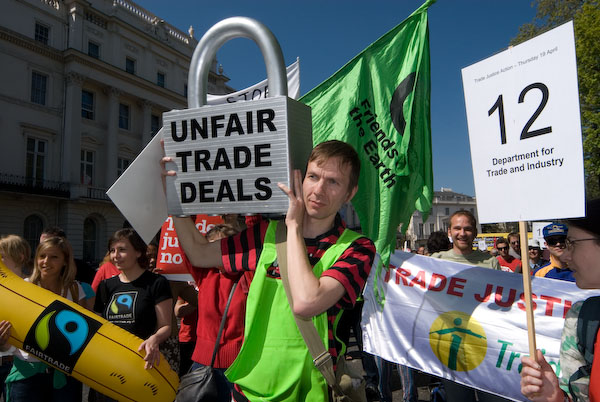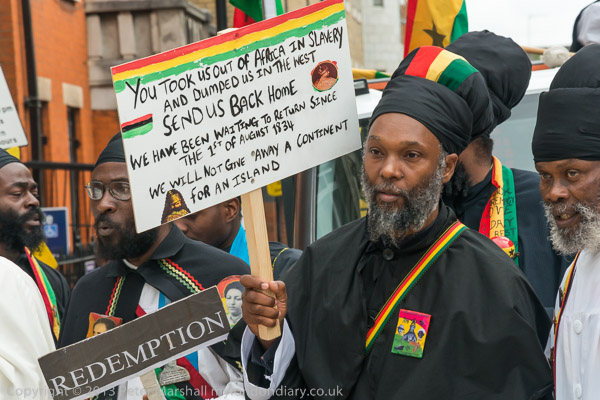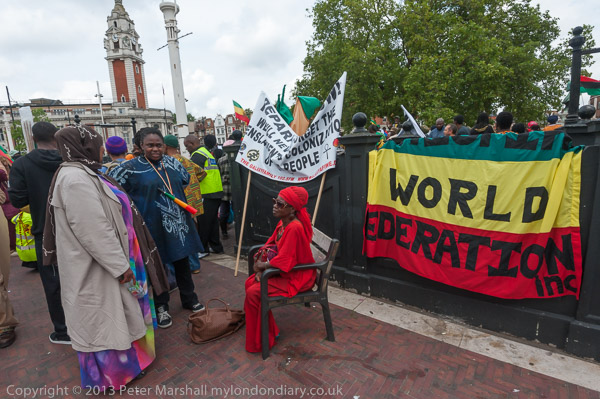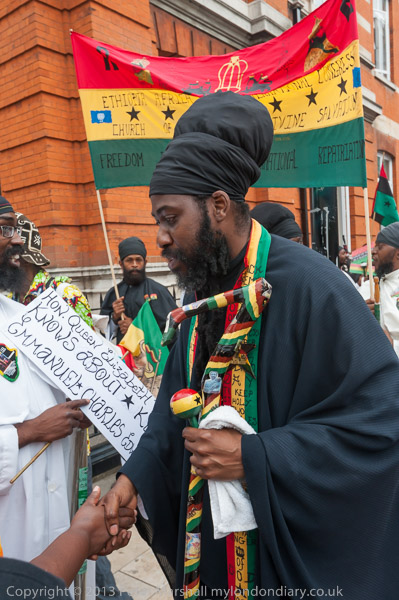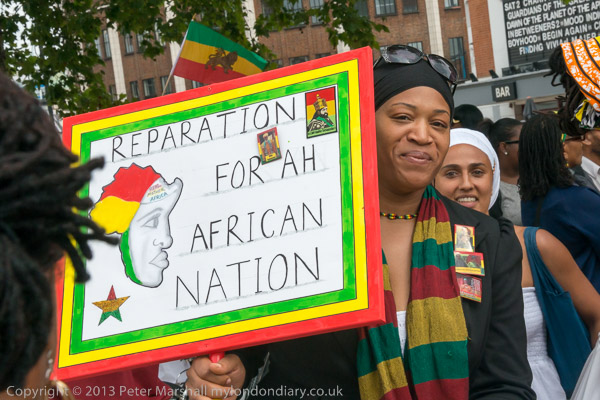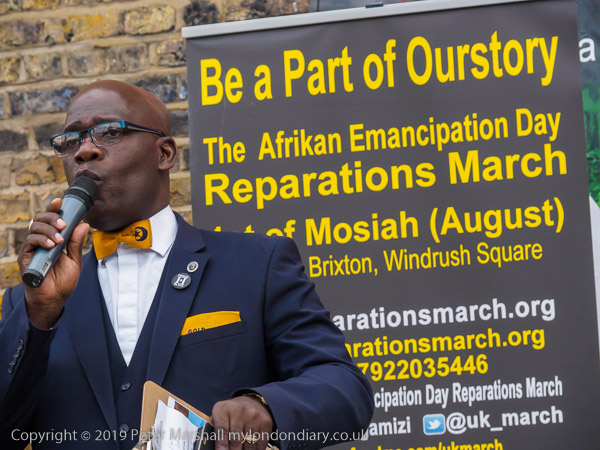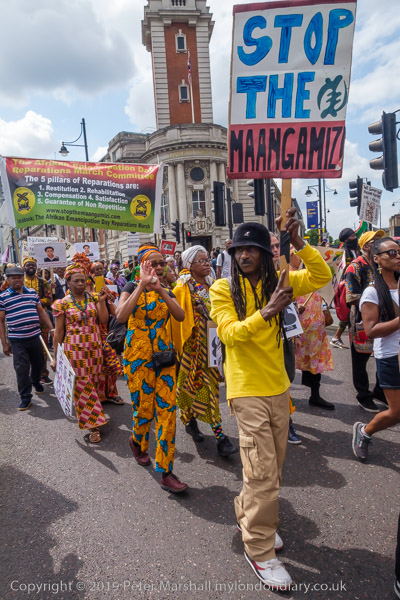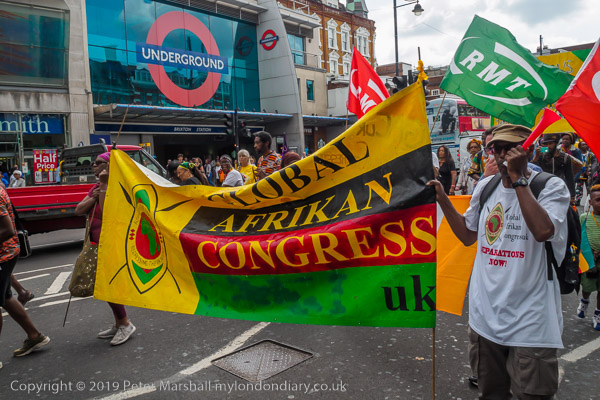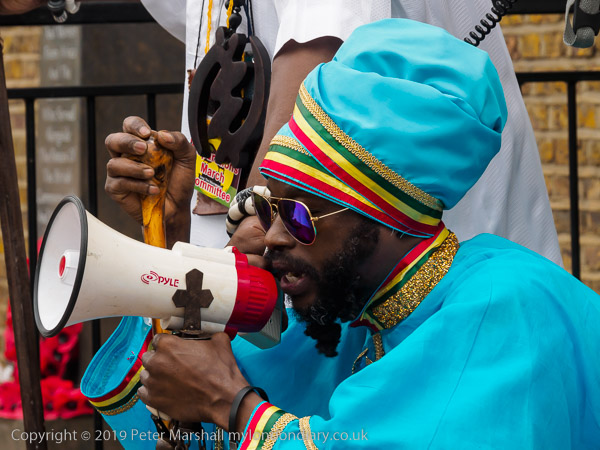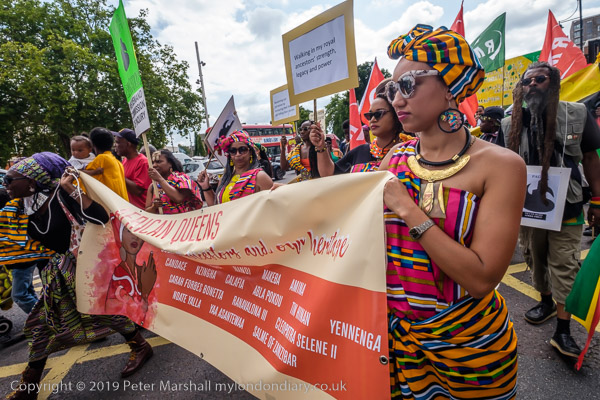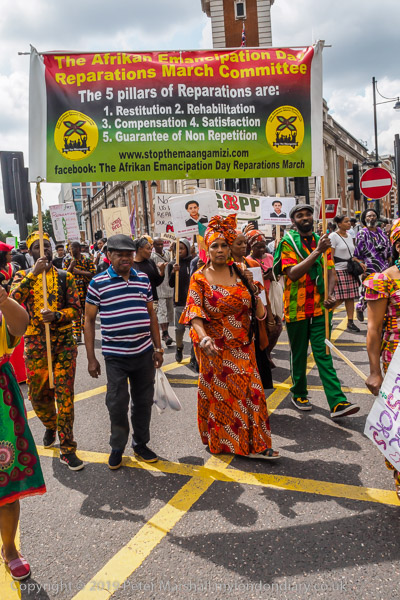Safe Passage, Guardians of the Forest: On Tuesday 24th October 2017 Safe Passage held a rally outside Parliament on the first anniversary of the destruction of the Calais ‘Jungle’ calling for help for the hundreds of refugees still sleeping rough in Calais. Later I photographed a rally by Guardians of the Forest, indigenous leaders from Latin America, Indonesia and Africa on their way to the COP23 UN Climate Change Conference in Bonn calling for the rights of indigenous peoples living in forests to be acknowledged and for an end to the destruction of these vital natural resources by mining and cash-crop cultivation.
Safe Passage for the Children of Calais
Old Palace Yard, Westminster
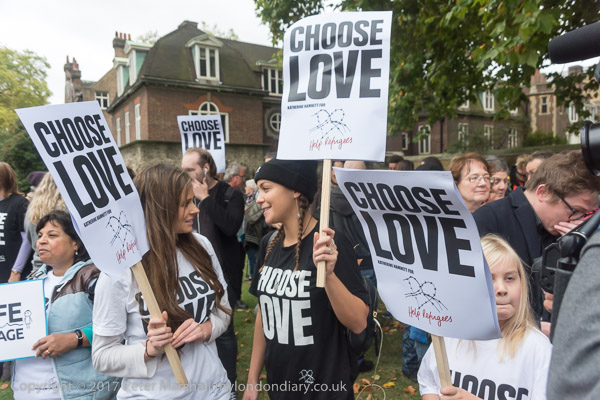
Safe Passage held a rally before going in to lobby MPs on the first anniversary of the destruction of the Calais ‘Jungle’.
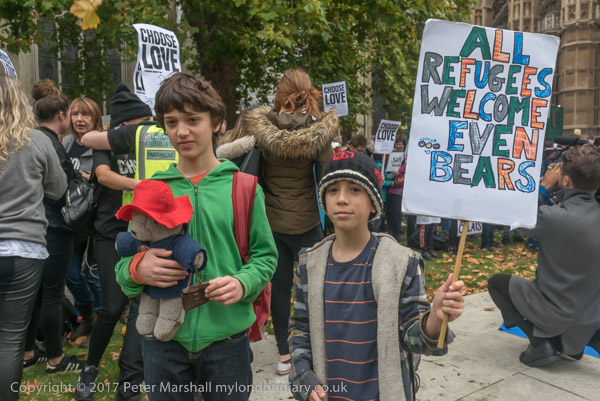
Although they praised the government for bringing some child refugees here from France they called for them to provide safe routes here for those still in Calais who have family here and to fill the remaining places allocated under the Dubs amendment.
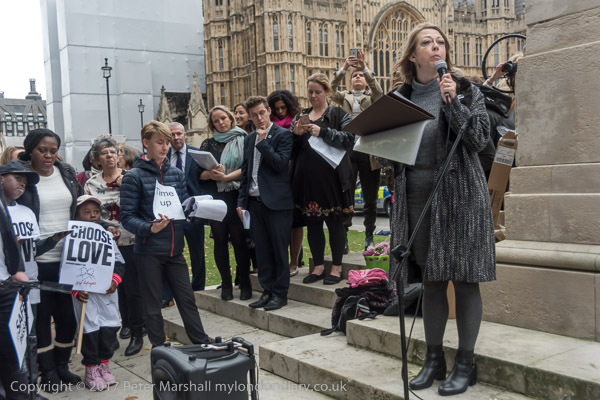
Eighteen months after the Dubs amendment was passed by Parliament there were still refugee children in Calais who were entitled to come here to be reunited with their families and Safe Passage urged the Home Office to station an official there to help to transfer them and work with the French to provide safe accommodation for all refugee children.
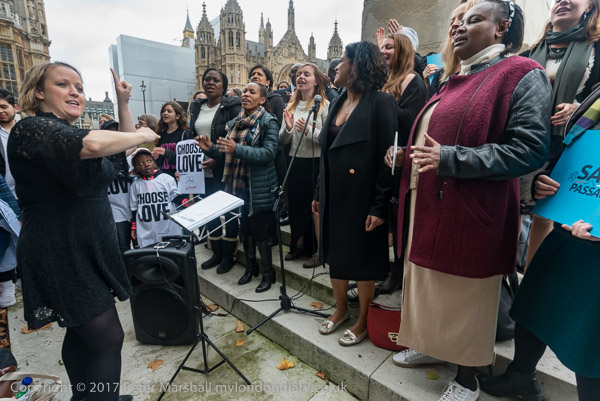
The Dubs amendment had originally proposed that the UK offer a home to 3,000 unaccompanied children but as passed it allowed the government to set a number in consultation with local authorities. Shamefully when the scheme closed in 2020 the government stated it had met its commitment with the transfer of only 480 children.
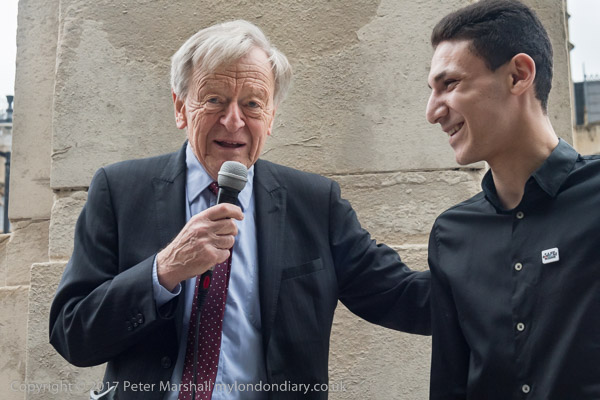
They were given a special status to stay for for five years with the right to study, work, and to access public funds and healthcare, and to apply after this to settle permanently without paying a fee.
More pictures on My London Diary at Safe Passage for the Children of Calais
Guardians of the Forest – COP 23
Parliament Square
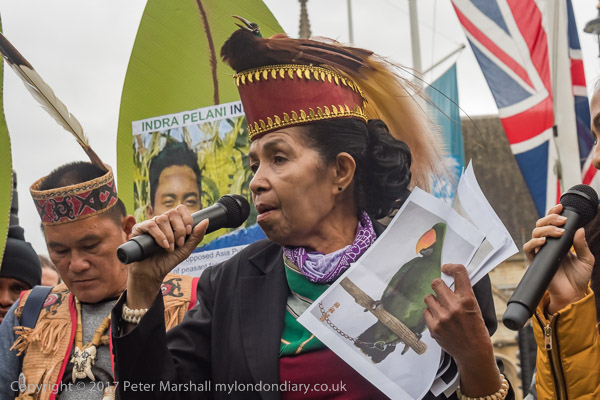
Indigenous leaders from Latin America, Indonesia and Africa held a rally in Parliament Square commemorating those who have lost their lives defending the forests against mining, the cutting down of forests for palm oil and other crops and other threats to the forests and those who live in them.
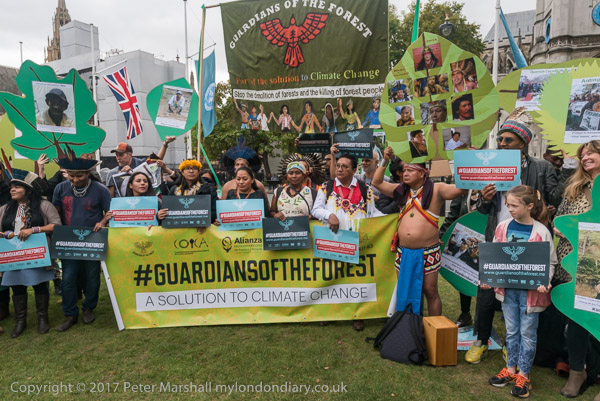
The Guardians of the Forest held up photographs of a few of the many who have been murdered for the profits of unscrupulous companies including many listed on the London stock exchange. Whole tribes have been forced from their homes and forests where they have lived for many generations, their ancestral rights to their lands ignored and dismissed by governments and occupiers.
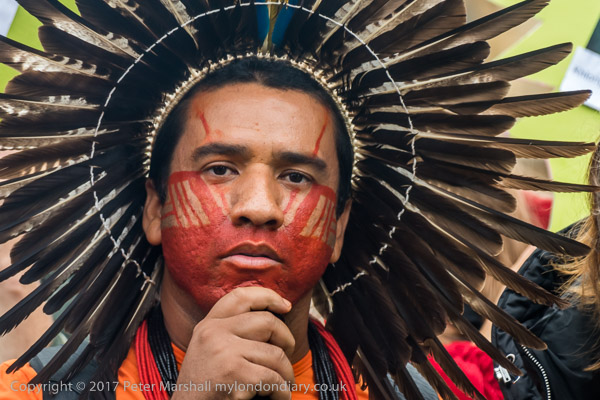
They demanded their rights be recognised and for the destruction of the forests they have maintained in a renewable fashion for hundreds or thousands of years to be stopped. These forests have a vital role in removing carbon dioxide from the air and producing oxygen and play a vital role in opposing climate change and preserving biodiversity. As well as reducing emissions we also need to increase rather than reduce forests and other natural habitats that remove carbon dioxide.
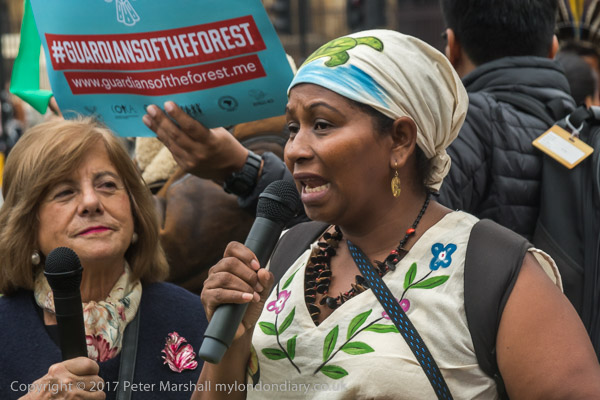
The Guardians were on their way to the COP23 UN Climate Change Conference in Bonn to argue that the continuing maintenance of the forests by their indigenous inhabitants is vital in the fight against climate change, and that the clearance and devastation has to be stopped. But they face a difficult task against the huge numbers of well-funded lobbyists and powerful governments who dominate these events and have so far prevented the world taking the actions needed for long-term survival.
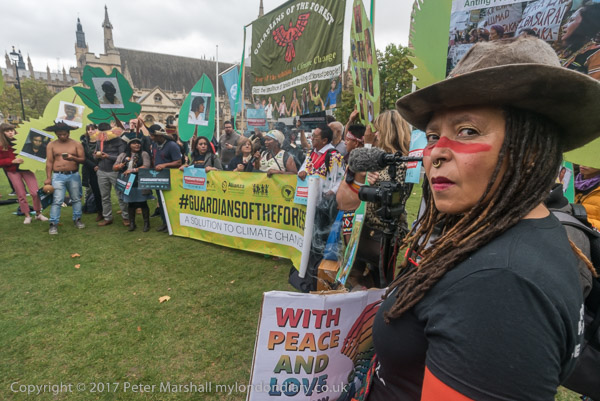
More on My London Diary – Guardians of the Forest – COP23.
Flickr – Facebook – My London Diary – Hull Photos – Lea Valley – Paris
London’s Industrial Heritage – London Photos
All photographs on this page are copyright © Peter Marshall.
Contact me to buy prints or licence to reproduce.

